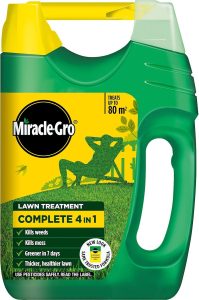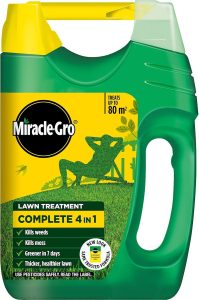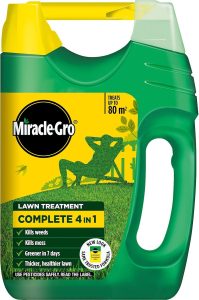As the sun rises over your lush green garden, you notice something unsettling. Your precious plants are under attack by tiny invaders that threaten to destroy all your hard work. But fear not, for there is a natural solution to this pesky problem. In this ultimate guide to organic pest control, we’ll arm you with the knowledge and techniques to protect your garden from the onslaught of unwanted critters without resorting to harmful chemicals. So put on your gardening gloves and get ready to reclaim your garden in the most natural and sustainable way possible.
Creating a Natural Habitat to Encourage Beneficial Insects
One effective way to control pests in your garden is by . These insects, such as ladybugs, lacewings, and ground beetles, can help keep unwanted pests at bay while promoting a healthy ecosystem in your garden. By providing these beneficial insects with the right environment, you can reduce the need for harmful pesticides and chemical interventions.
Consider planting a variety of flowering plants, herbs, and grasses to attract beneficial insects to your garden. Providing a water source, such as a birdbath or small pond, can also help create a welcoming environment for these helpful creatures. Additionally, consider leaving some areas of your garden undisturbed to provide shelter and nesting sites for beneficial insects. By incorporating these elements into your garden design, you can create a natural habitat that promotes biodiversity and sustainable pest control.
Utilizing Companion Planting Techniques for Pest Prevention
One effective method for preventing pests in your garden is through companion planting techniques. By strategically planting certain plants together, you can naturally deter pests and promote a healthy ecosystem for your crops. This organic pest control method not only helps keep your plants safe but also reduces the need for harmful pesticides.
Some popular companion planting combinations for pest prevention include:
- Marigolds and tomatoes: Marigolds help repel nematodes and whiteflies that can harm tomato plants.
- Lavender and cucumbers: Lavender repels moths and beetles that are common pests for cucumber plants.
- Mint and cabbage: Mint helps deter cabbage moths, which can destroy cabbage crops.
Implementing Homemade Organic Pest Control Sprays
Are pesky insects wreaking havoc on your garden? Look no further than homemade organic pest control sprays to save the day! These natural remedies are not only effective at keeping pests at bay, but they are also safe for the environment and your health.
<p>One popular DIY pest control spray is a mixture of <strong>garlic, onion, and cayenne pepper</strong> steeped in water. Simply spray this concoction on your plants to deter unwanted visitors. Another option is a <strong>neem oil spray</strong>, which is derived from the neem tree and is known for its insect-repelling properties. These homemade solutions are a great alternative to chemical pesticides, allowing you to cultivate a healthy and thriving garden.</p>
Maintaining Healthy Soil to Deter Common Garden Pests
One of the best ways to deter common garden pests is by maintaining healthy soil in your garden. Healthy soil provides a strong foundation for your plants to grow, making them more resilient to pest attacks. To achieve healthy soil, follow these tips:
- Regularly test your soil to ensure it has the right pH levels and is well-balanced with nutrients.
- Use organic compost and mulch to promote soil health and improve its structure.
- Rotate your crops to prevent the buildup of pests that are specific to certain plants.
In addition to maintaining healthy soil, you can also introduce beneficial insects and plant companion plants to naturally control pests in your garden. Some beneficial insects include ladybugs, lacewings, and praying mantises, which can help keep pest populations in check. Planting companion plants like marigolds, basil, and mint can also help repel pests and attract beneficial insects. By following these organic pest control methods, you can ensure a healthy and pest-free garden all season long.
To Wrap It Up
As you navigate your way through the world of organic pest control in your garden, remember that patience and persistence are key. By implementing the tips and methods outlined in this ultimate guide, you can create a harmonious and thriving ecosystem in your outdoor space. Embrace the diversity of nature and work hand in hand with it to maintain a healthy balance. With a little creativity and a lot of love for your plants, you can keep pests at bay without harming the environment. Here’s to a beautiful and bountiful garden, free from synthetic chemicals and full of life! Happy gardening!




